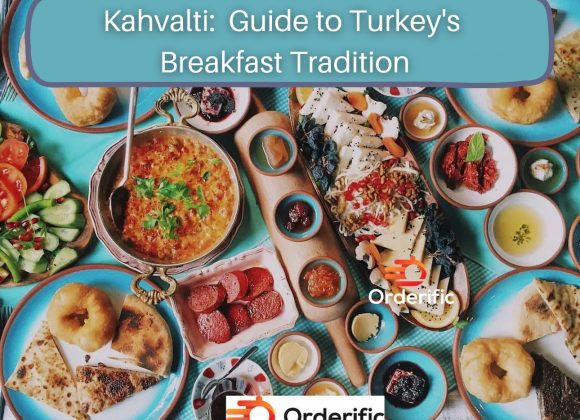Introduction
In today’s competitive retail landscape, providing an excellent CRM, customer preferences, personalized discounts is key. Grocery retailers are leveraging Customer Relationship Management (CRM) to enhance customer loyalty, personalization, and satisfaction. CRM utilizes customer data to deliver personalized marketing that targets customer preferences, enhancing both the customer interaction and the personalized experience. It acts as a tool facilitating marketers to execute effective marketing campaigns, based on customer behavior and purchase history. Moreover, the robust customer feedback system and loyalty programs foster customer retention and loyalty. In a nutshell, CRM in grocery retail is a blend of customer interaction, personalized services, and marketing efforts, aimed at enriching the customer journey and building a loyal customer base.
Collecting And Analyzing Customer Data To Inform Your Marketing Efforts
Collecting and analyzing customer data is at the heart of CRM in grocery retail. This data, ranging from purchase history to customer preferences, enables retailers to offer a truly personalized experience. It informs marketing efforts, enabling the design of personalized marketing campaigns that resonate with the customer’s unique needs, driving customer engagement and loyalty.
This personalization is multi-faceted. It could be in the form of personalized recommendations on the store’s app or website, personalized offers in an email, or even personalized content in the store’s loyalty program. These efforts not only enhance the customer experience but also build brand loyalty by making the customer feel valued and understood.
Furthermore, the customer data collected is used to create comprehensive customer profiles. These profiles facilitate personalized customer service, fostering a positive customer interaction and ultimately, customer satisfaction. They also support customer retention strategies by enabling a deeper understanding of customer behavior and needs.
In essence, the use of customer data in CRM doesn’t just enable personalized marketing but also shapes the entire customer journey, from customer support to the final purchase, ensuring a seamless and enjoyable customer experience. This proactive use of customer data underscores the importance of CRM in building a loyal customer base and enhancing customer loyalty in grocery retail.
Creating Targeted And Personalized Marketing Campaigns
Creating targeted and personalized marketing campaigns is central to CRM in grocery retail. Utilizing customer data effectively can transform the customer experience by tailoring marketing initiatives to individual customer needs and preferences. These personalized marketing efforts include product recommendations based on purchase history, personalized offers, and relevant content in loyalty programs.
Such personalization fosters an enriched customer journey, leading to elevated customer satisfaction. The careful integration of customer data into marketing campaigns ensures that customer service is personalized, reinforcing positive customer interactions and feedback. This strategic approach to marketing, powered by CRM, contributes significantly to customer retention and builds a strong, loyal customer base.
In summary, the judicious use of customer data informs personalized marketing campaigns, enhancing customer engagement, loyalty, and satisfaction. CRM is instrumental in establishing a mutually beneficial customer relationship, where businesses gain loyal customers and customers feel valued and understood. It underscores the importance of personalization in marketing, customer service, and the overall customer experience.
Using Automation To Streamline Your Marketing Processes And Improve Efficiency
Automation in Customer Relationship Management (CRM) in grocery retail is pivotal to improving marketing efficiency and enhancing the customer experience. By automating marketing processes, retailers can streamline their operations, ensuring timely and consistent customer interactions. This includes sending personalized emails with offers tailored to the customer’s purchase history or providing personalized recommendations through the store’s app.
Moreover, automation allows for the creation of comprehensive customer profiles. These profiles are informed by customer data, providing a wealth of information about customer behavior, preferences, and needs. Such data-driven personalization fosters a more engaging customer experience, improves customer satisfaction, and strengthens customer loyalty.
CRM automation also bolsters marketing efforts. For instance, it can trigger personalized marketing campaigns based on specific customer behaviors or milestones, thereby creating a more tailored and interactive shopping experience.
Furthermore, automation supports customer retention strategies. By offering personalized customer service and making customers feel valued, businesses can foster a stronger customer relationship, leading to increased brand loyalty.
In essence, automation in CRM is a powerful tool for grocery retailers. It not only streamlines marketing processes but also enhances personalized marketing, customer engagement, loyalty, and satisfaction. Ultimately, it contributes to building a loyal customer base, highlighting the importance of CRM in today’s competitive retail landscape.
Developing Customer Personas To Better Understand Your Target Audience

Developing customer personas is a significant aspect of CRM in grocery retail. By creating detailed representations of different customer segments, retailers can better understand their target audience and tailor their marketing strategies accordingly. Personas provide insights into customer behaviors, needs, and preferences, enabling personalized marketing that resonates with customers. These detailed personas help retailers make informed decisions about product placements, offers, and promotions, enhancing customer experience and loyalty. Personalized recommendations based on these personas ensure customers find products they love and need, fostering a sense of value and satisfaction. This personalized approach elevates the overall customer journey, leading to increased brand loyalty and customer retention. In summary, customer personas play a crucial role in informing personalized marketing strategies and improving customer engagement, loyalty, and satisfaction. They are a testament to the importance of CRM in building a loyal and satisfied customer base in grocery retail.
Leveraging Technology To Create A Seamless Customer Experience Across Channels
Leveraging technology is a critical aspect of CRM in grocery retail. The use of technology creates a seamless customer experience across all channels – in-store, online and mobile, thus enhancing personalized marketing and customer loyalty. The integration of AI and data analysis tools allow for a more refined understanding of customer behavior and preferences, enabling retailers to tailor their marketing strategies and deliver a superior, personalized customer experience. For example, predictive analytics can be used to anticipate customer needs and tailor recommendations, while chatbots can provide real-time customer service, resolving queries and offering personalized assistance. This multi-channel approach to customer interaction ensures a consistent and unified customer experience, reinforcing brand loyalty and customer satisfaction. In essence, the use of technology in CRM not only facilitates personalized marketing but also streamlines customer service and the overall customer journey, playing a significant role in building a loyal customer base in grocery retail.
Measuring The Success Of Your Personalized Marketing Campaigns Through Data Analysis
Measuring the success of personalized marketing campaigns is integral to CRM in grocery retail. By analyzing collected data and tracking key metrics, retailers can assess the effectiveness of their marketing efforts, gauge customer response, and fine-tune their strategies for improved results. Metrics such as customer engagement rates, conversion rates, and customer retention rates serve as insightful indicators of campaign success. For example, a high engagement rate on a personalized email campaign could signify that the content resonates with the target audience. Similarly, an increase in customer retention rates post a personalized marketing initiative could point to heightened customer satisfaction and loyalty. Data analysis also offers insights into customer behavior, preferences and trends, further guiding the personalization of future marketing endeavors. Therefore, data analysis is not merely a tool for measuring success, but a driving force behind the continuous enhancement of customer experience, loyalty, and personalized marketing in grocery retail.
Best Practices For Implementing Personalized Marketing Through CRM In Your Organization
Implementing personalized marketing through CRM in your grocery retail organization requires a strategic approach grounded in best practices. First, ensure you consistently collect and analyze customer data. This data informs the personalization of your marketing efforts, deepening customer engagement and loyalty. Second, effectively utilize automation. By automating tasks, you can streamline your marketing processes, heighten efficiency, and ensure more consistent, personalized customer interactions. Third, develop detailed customer personas. These personas provide valuable insights into your customer base, aiding in the creation of marketing strategies that resonate with your target audience. Fourth, leverage technology.
Use data analysis tools, AI, and other technologies to create a seamless customer experience across all channels. Finally, measure your success. Regularly analyze your data and monitor key metrics to assess the effectiveness of your personalized marketing campaigns and refine your strategies for improved results. By adhering to these best practices, you can successfully implement personalized marketing through CRM, enhancing your customer experience, loyalty, and establishing a robust customer base in your grocery retail organization.
Balancing Personalization With Privacy Concerns And Data Security
Balancing personalization with privacy concerns and data security is a critical consideration in the implementation of CRM in grocery retail. The collection and use of customer data for personalized marketing must be managed responsibly, ensuring compliance with data protection regulations. Transparency in data collection processes is key. Customers should be made aware of how their data is being used and given control over their information. It’s also essential to implement robust data security measures to guard against breaches and protect customer information. Such practices will not only ensure regulatory compliance but also build trust with customers, enhancing their loyalty and satisfaction. In essence, while personalization through CRM is crucial in enhancing the customer experience and loyalty, it must be balanced with a strong commitment to data privacy and security.
The Future Of Personalized Marketing And The Role Of AI In Customer Relationship Management
As we gaze into the future of personalized marketing in grocery retail, we can anticipate an era of increasingly refined personalization, driven by advancements in technology and data analytics. Artificial Intelligence (AI) and machine learning will play a pivotal role in this evolution, further enhancing the customer experience and loyalty.
Personalized marketing will continue to evolve to deliver more precise and relevant interactions, moving beyond promotional emails and tailored recommendations. Futuristic applications could include real-time personalized pricing, hyper-personalized shopping experiences, and highly customized products. Here, the potential for AI is immense. By harnessing AI, retailers can delve deeper into customer behavior, anticipate needs more accurately, and create more engaging customer experiences.
In the future, we can expect a shift towards ‘predictive personalization’. This involves understanding customer behavior patterns and future needs to offer personalized product recommendations and promotions even before the customer realizes they need them. Predictive analytics powered by AI can enable these timely and highly relevant interactions.
The Role Of AI In Customer Relationship Management
AI holds the potential to revolutionize CRM in grocery retail on multiple levels, by enabling more personalized and effective customer interactions, automating processes for improved efficiency, and providing deeper insights through data analysis.
AI can help retailers better understand customer behavior and preferences, and offer personalized marketing that resonates with customers. For instance, AI can analyze customer purchase history and behavior to generate accurate product recommendations or personalized offers.
Moreover, AI can automate various marketing processes, such as sending personalized emails or managing loyalty programs. This not only increases efficiency but also ensures consistent and timely customer interactions. AI can also support customer service functions, with chatbots capable of handling customer queries and providing personalized assistance in real-time.
AI can also enhance data analysis capabilities. By processing vast quantities of customer data, AI can uncover key insights into customer behavior and trends, enabling more strategic and effective marketing decisions.
Challenges And Opportunities In AI Adoption
However, the adoption of AI in CRM is not without its challenges. Data privacy and security concerns are paramount. Retailers must ensure that the use of AI in collecting and analyzing customer data is in compliance with data protection regulations. Additionally, there is a need for increased transparency in AI operations. Customers should be informed about how their data is used and given control over their information.
Despite these challenges, the opportunities that AI presents for CRM in grocery retail are significant. It is expected that AI will continue to drive the evolution of personalized marketing, providing exciting avenues for enhancing customer experience and loyalty. By adopting AI responsibly and proactively, grocery retailers can stay ahead of the competition, build stronger customer relationships, and ensure enduring success.
In conclusion, the future of personalized marketing in grocery retail is brimming with potential, promising more refined and engaging customer experiences. The role of AI in this journey is pivotal, offering new ways to personalize interactions, automate processes, enhance data analysis, and ultimately, strengthen customer relationships. As we move forward, the focus should be on harnessing the power of AI responsibly and effectively, balancing personalization with privacy, and continually adapting to evolving customer expectations.
Conclusion
To sum up, the world of grocery retail is rapidly transforming, with CRM, customer preferences, personalized discounts at the core of this evolution. The ability to understand and connect with customers on a more personalized level is no longer an optional asset, but a necessity for businesses aiming to thrive in this competitive arena. Technology, especially AI, is poised to play a game-changing role in further enhancing this personalization, offering unprecedented insights into customer behaviors and preferences. However, with these advancements come increased responsibilities of data security and privacy. Balancing this dichotomy is crucial in order to maintain customer trust and loyalty. The future of personalized marketing in grocery retail is indeed fascinating, and we look forward to witnessing the innovative ways in which AI will reshape our shopping experiences.
If you’re interested in exploring how these concepts can be implemented and optimized in your grocery retail business, Orderific is here to help. We invite you to book a demo with us and take the first step towards a more personalized, efficient, and customer-centric business model.
FAQs
What CRM helps customer loyalty programs?
CRM tools like Salesforce, HubSpot, and Zoho can effectively aid in managing customer loyalty programs.
Do customers want personalization?
Yes, customers generally appreciate personalization as it enhances their shopping experience.
How to improve MY CRM to benefit my marketing?
You can improve your CRM to benefit your marketing by consistently collecting and analyzing customer data, effectively utilizing automation, and leveraging technology.
Why is personalized marketing important?
Personalized marketing is important as it enhances customer experience, fosters loyalty, and improves engagement and conversion rates.













